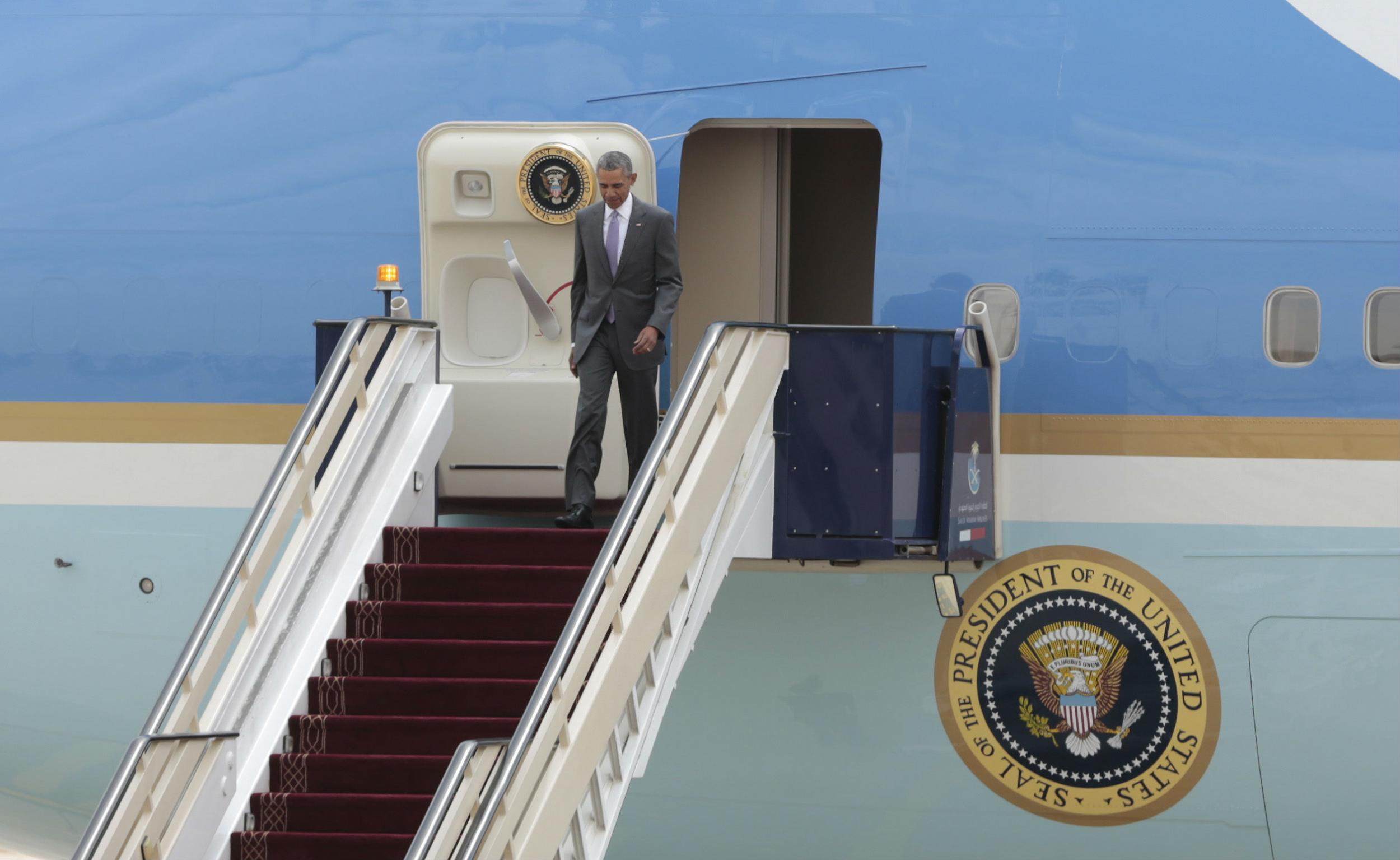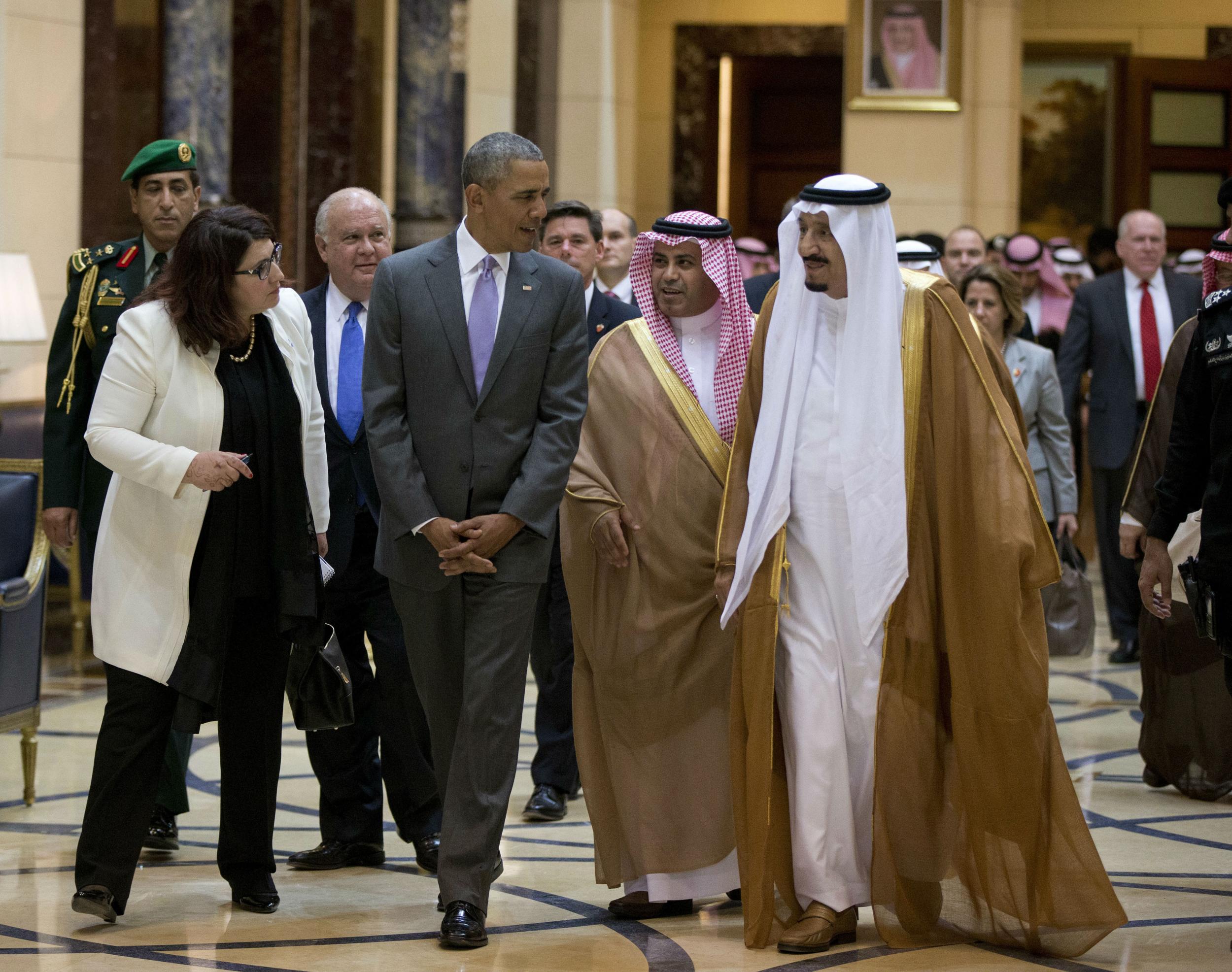Barack Obama gets diplomatic snub as Saudi Arabia shows its anger over 9/11 bill
The US president was due to spend less than 24 hours in the kingdom

Your support helps us to tell the story
From reproductive rights to climate change to Big Tech, The Independent is on the ground when the story is developing. Whether it's investigating the financials of Elon Musk's pro-Trump PAC or producing our latest documentary, 'The A Word', which shines a light on the American women fighting for reproductive rights, we know how important it is to parse out the facts from the messaging.
At such a critical moment in US history, we need reporters on the ground. Your donation allows us to keep sending journalists to speak to both sides of the story.
The Independent is trusted by Americans across the entire political spectrum. And unlike many other quality news outlets, we choose not to lock Americans out of our reporting and analysis with paywalls. We believe quality journalism should be available to everyone, paid for by those who can afford it.
Your support makes all the difference.Barack Obama endured something of a diplomatic snub as he arrived in Saudi Arabia for crucial talks about tackling Isis.
The long, roller-coaster relationship between the US and the kingdom two countries is going through one its rockier phases, with the Saudi government furious about a bill passing through the US Congress that could leave it open to lawsuits over its alleged involvement in the 9/11 attacks.
Mr Obama has opposed the bill and has threatened to veto it if it reaches his desk. But the US president was made clear of Saudi’s displeasure when he arrived at King Khalid International Airport and was met not by King Salman but by a lower-ranking royal, Prince Faisal bin Bandar Al Saud, the governor of Riyadh.
Ahead of Mr Obama’s arrival, Saudi state television showed the king personally greeting senior officials from other Gulf nations arriving at the King Salman Air Base, the Associated Press reported.
Mustafa Alani, a security analyst at the Gulf Research Centre, said the Saudi decision not to dispatch a high-level delegation to greet the president was unusual and intended to send a clear message that they had little faith in him.
“He will find a leadership that’s not ready to believe him,” he told the news agency. “The Saudis had disagreements with previous presidents. Here you have deep distrust that the president won’t deliver anything.”
Mr Obama later had a one-on-one meeting with King Salman, and then took part in a regional summit with leaders from the United Arab Emirates, Qatar, Kuwait, Oman and Bahrain.
The meeting focussed on regional stability, counterterrorism including the fight against the Isis and Al-Qaeda, and the relationship with Iran in the aftermath of the nuclear deal with the West.
“The personal relationship between Mr Obama and the Gulf leaders is cool. President George W Bush had a much closer personal relationship,” Paul Salem, a regional expert at the Washington-based Middle East Institute, told The Independent.

“Gulf leaders rely on these personal relationships to sort problems out. Having said all that, the relationship between the US and the Gulf countries is pretty deep - there’s oil and energy….There’s also a close security relationship.”
The Sunni kingdom has long enjoyed its status as a regional power and its close relationship with the US. In recent years, it has expressed concern about a perceived pivot by the US towards Shiia Iran.
Mr Salem said the Gulf leaders were disappointed with what they considered the US’s failure to push back against Iran or its proxies, both in Syria and elsewhere. He said the Gulf leaders believed Hillary Clinton may be more forceful as president; they were alarmed by Donald Trump’s rhetoric.
Last week, it emerged that Saudi Arabia had told the Obama administration it would sell off hundreds of billions of dollars of American assets if Congress passed the bill that would allow the Saudi government to be held responsible for any role in the 2001 assault.
A US commission established in the aftermath of the attacks also concluded there was no evidence of official Saudi connivance. However, the White House has been under pressure to declassify a 28-page section of the report that was never published on the grounds of national security.
Some of the families of the more than 3,000 who died, have been trying to use the courts to hold responsible members of the Saudi royal family, Saudi banks and charities. Yet these efforts have been largely blocked because of a 1976 law that gives foreign nations some immunity from lawsuits in American courts.
The Senate bill is intended to make clear that the immunity given to foreign nations under the law should not apply in cases where nations are found culpable for terror attacks that kill Americans on United States soil.
Earlier this week, the White House said Mr Obama would veto any such legislation.
“Given the long list of concerns I have expressed, it’s difficult to imagine a scenario in which the president would sign the bill as it’s currently drafted,” said White House spokesman Josh Earnest.
“A country with a modern and large economy like Saudi Arabia would not benefit from a destabilised global financial market, and neither would the United States.”
Join our commenting forum
Join thought-provoking conversations, follow other Independent readers and see their replies
Comments